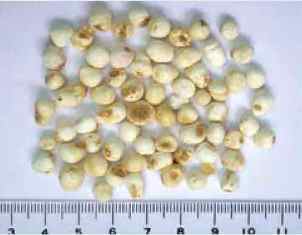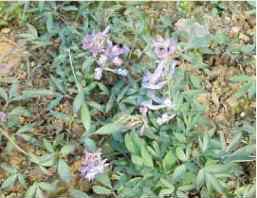SUN TEN Quarterly Newsletter Summer 2011: The Application of TCM Treatment for Gastritis
The Application of TCM Treatment for Gastritis
by Dr. Jin-Cheng Lin
Problems within the digestive tract are often the cause of illness. There are many causes of gastrointestinal illness, but the most common is acute catarrhal gastritis. Gastritis is a condition that arises from improper eating habits that cause functional damage to the gastrointestinal tract. The most common causes include overindulgence of food and drink, consuming excessive amounts of raw, cold or unclean foods, and eating foods that are difficult to digest.
The primary symptoms of acute catarrhal gastritis include stomach pain, distention and discomfort in the stomach, nausea, vomiting, and a lack of appetite. Diarrhea is not typically associated with gastritis. Endoscopy has shown that the locus of this disease is in the gastric mucous membrane. In this circumstance, the mucous membrane becomes red and swollen, and will shed. Tissue samples show infiltration of polymorphonuclear neutrophils into the mucous membrane (white blood infiltration is a result of the inflammation). Damage of the mucous membrane results in ruptures, hence; bleeding in the stomach is sometimes an issue. In most instances the symptoms of acute gastritis can be diminished or resolved with treatment. However, if not properly treated, some conditions of acute gastritis may develop into chronic gastritis.
Chronic gastritis is a difficult condition to treat when using Western pharmacological medicine. According to modern science, factors related to the development of chronic gastritis include diet, alcohol consumption, smoking, and consumption of other stimulating substances. Problems encountered when treating gastritis with Western pharmaceutical medicine often arise because it does not properly address the unique health factors of the patient nor does it address the individual’s diet in detail.
Why Western Pharmaceutical Medicine Has No Cure
Looking at the prognosis in terms of current Western medical treatment, the rate of improvement for chronic superficial gastritis is very low at about 30%. There is no long-term change in roughly 50% of the patients with gastritis, while about 20% of sufferers go on to develop atrophic gastritis. Roughly 30% of mild atrophic gastritis cases are reversed to a state of superficial gastritis. Chronic atrophic gastritis is often accompanied with severe intestinal metaplasia and atypical hyperplasia. Both of these conditions increase the possibility of developing cancer. The likelihood of those with atrophic gastritis developing cancer is very low. Several studies have put the number at around 10%.
Treatment using Western pharmacological medicine is limited to antacids, analgesics, or parasympatholytic drugs. These treatments are focused solely on symptoms while failing to address the underlying causes. Furthermore, some patients develop a tolerance to medications, which means that when symptoms strike, the only way they can be controlled is to increase the dosage of the medication. If the medicines are stopped, the patient will suffer once again.
Although analgesics are often very effective at relieving pain and spasms, long-term self-medication and the misuse of Western pharmaceutical medicines by patients can have deleterious side effects, such as glaucoma, prostatitis, inhibited urination, and enuresis. It seems appropriate that these medicines should only be used for acute cases. When considering the long-term effects when taking these medications, Chinese herbal medicine seems to be a better choice.
The Benefits of Treating Chronic Gastritis with Chinese Medicine
According to Chinese medical theory, the underlying pathomechanisms that result in chronic gastritis are:
-
disharmony between the Spleen and Stomach
-
loss of the normal ascending/descending movement of Qi
-
complex of heat and cold as well as deficiency and excess
Therefore the Chinese medical therapeutic treatment principle follows a two-fold approach. The first is to regulate the function of the Stomach and promote digestion. The second is to facilitate the recovery of the body’s overall metabolic process and ease stomach pain by stabilizing the autonomic nervous system. In Chinese medical thought, the treatment approach includes warm supplementation, harmonizing the stomach, regulating the Qi. These are effective treatments that address the underlying root of chronic gastritis.
The chronic nature of the illness requires that the patient undergoes long-term herbal treatment in order to completely resolve the problem. If the patient is unable to take the herbal medicine as prescribed, the treatment will be less effective, even if the formula is perfectly suited to the pattern. Commonly used formulas include Pinellia Combination (Ban Xia Xie Xin Tang), Cardamon & Fennel Formula (An Zhong San), Vladimiriae & Cardamom Combination (Xiang Sha Liu Jun Zi Tang), and Ginseng & Ginger Combination (Li Zhong Tang). Once the pattern is correctly identified, it is just a matter of time before noticeable positive results are observed.

Pinellia (Ban Xia)
The emperor herb of Pinellia Combination (Ban Xia Xie Xin Tang)

Corydalis (Yan Hu Suo)
The emperor herb of Cardamon & Fennel Formula (An Zhong San)
Join our member to get full-text article! Join Free!
[Application of Gastritis Formulas] for members only
[Modifications] for members only
[Research on the Treatment of Gastritis with Chinese Herbal Medicine] for members only
[Reference] for members only